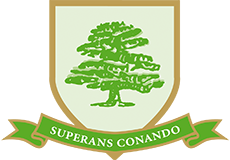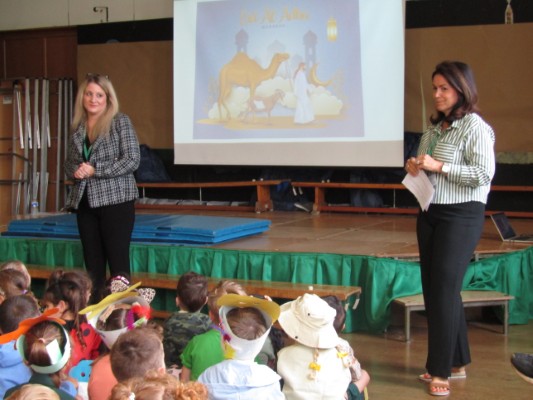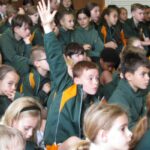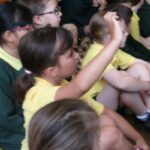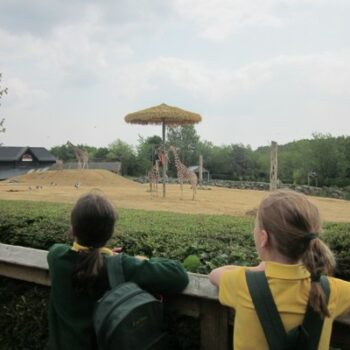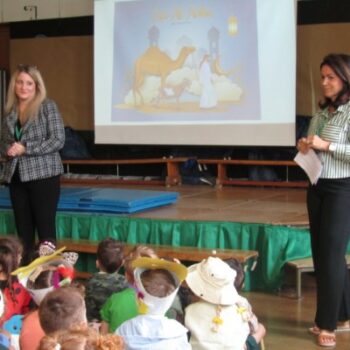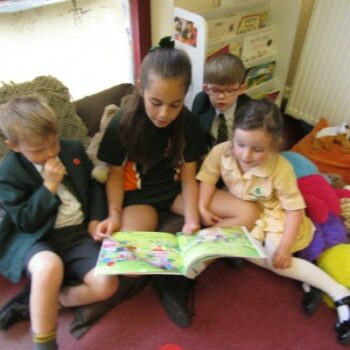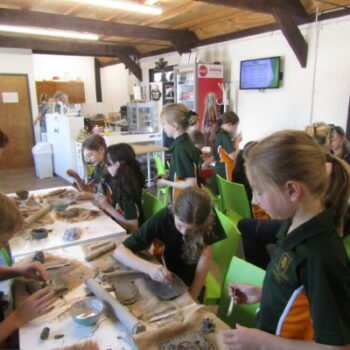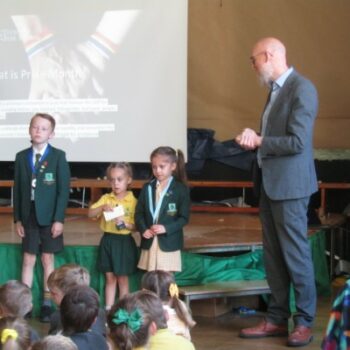The pupils gathered in the hall to learn about a special celebration that many Muslims around the world were enjoying — it’s called Eid al-Adha, which means the Festival of the Sacrifice.
Mrs Hogarth asked everyone what they thought the word sacrifice meant — and Luke from 4B gave a wonderful example:
“Sometimes you have to give up your free time to do your homework — so we are sacrificing our time to do this.”
Mrs Hogarth explained that this is a time when Muslim families reflect on the importance of faith, kindness, and sharing with others. The pupils watched a video which helped them gain a better understanding of how this festival is celebrated.
They learned that Muslims gather together and share food with their families. They also visit the graves of loved ones to show that they are remembered at this special time. It is common to enjoy wearing new clothes, exchanging gifts, and sharing a special meal with people in need, or giving money to help others. This is a time for prayer, family, and compassion.
Given all the meaningful aspects of this festival, Mrs Hogarth asked the pupils to think about other moments their own families enjoy together. She was delighted to see how pupils recognised similarities with other celebrations:
- Christmas, where Christians celebrate the birth of Jesus;
- Passover, where Jewish people remember their journey to freedom and share special meals;
- Diwali, the Hindu festival of lights, celebrating the triumph of good over evil, where families exchange gifts and help others;
- Vaisakhi, celebrated by Sikhs as a time of community and faith.
The assembly concluded with everyone appreciating how our different faiths all highlight the same core values, which we were all pleased to recognise. Mrs Hogarth encouraged us to remember that whether or not we celebrate Eid, we can all learn from its message — to be generous, faithful, and caring.
So today, let’s remember the story of Eid al-Adha, and try our best to be kind, helpful, and thoughtful.

